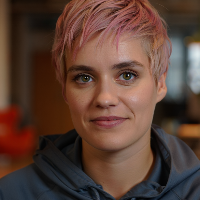Facilitation Skills for Inclusive Meetings
This course is tailored for team leads, project managers, HR professionals, educators, workshop facilitators, and anyone responsible for ensuring that group discussions are productive, respectful, and inclusive—whether conducted in person or remotely. Who Should Take This Course? Team leaders seeking …
Overview
This course is tailored for team leads, project managers, HR professionals, educators, workshop facilitators, and anyone responsible for ensuring that group discussions are productive, respectful, and inclusive—whether conducted in person or remotely.
Who Should Take This Course?
- Team leaders seeking to foster open dialogue and shared decision-making.
- Project managers aiming to run effective, participatory meetings.
- HR professionals who facilitate group sessions or trainings.
- Educators and workshop facilitators who wish to create safe and collaborative learning environments.
- Anyone who wants to ensure all voices are heard and valued in meetings.
Why Take This Course?
Meetings are fundamental to collaboration, innovation, and organizational progress. However, without skilled facilitation, meetings can become unproductive, exclusionary, or dominated by a few voices. This course addresses these challenges by equipping participants with core facilitation skills and inclusive methods that create safe, engaging, and effective spaces for group interaction.
Participants will learn to:
- Understand the unique role of a facilitator and how it differs from simply leading or moderating a meeting.
- Clarify meeting goals and structure discussions to promote inclusive participation and clear outcomes.
- Apply practical techniques to engage quieter team members and manage dominant voices respectfully.
- Create and sustain a psychologically safe environment where everyone feels comfortable contributing.
- Use structured facilitation methods, such as round robin, silent brainstorming, and dot voting, to organize group input and decision-making.
- Handle challenging meeting situations, including digressions, conflicts, and disruptions, while maintaining group focus and respect.
- Facilitate remote and hybrid meetings effectively, addressing the unique challenges of virtual collaboration and ensuring equal participation for all attendees.
What Will You Learn?
- The Foundations of Inclusive Facilitation: The core principles that distinguish facilitation from other forms of leadership; the goals and benefits of inclusive meetings; and the value of structure in group processes.
- The Role of the Facilitator: The facilitator’s responsibilities before, during, and after a meeting; maintaining neutrality; managing time and expectations; and keeping energy and engagement high.
- Techniques for Engaging All Participants: Clear strategies for encouraging contributions from every participant, balancing group dynamics, and reading both verbal and non-verbal cues.
- Inclusive Facilitation Methods: Step-by-step guidance on using inclusive techniques that ensure balanced participation and consensus-building.
- Dealing with Difficult Situations: Constructive approaches for addressing off-topic discussions, conflicts, and disruptive behaviors while protecting psychological safety.
- Facilitating Remote and Hybrid Meetings: Practical tools and approaches for overcoming the barriers of virtual meetings and ensuring everyone has an equal voice, regardless of location.
Curriculum
- 7 Sections
- 23 Lessons
- Lifetime
- 1. The Foundations of Inclusive Facilitation4
- 2. The Role of the Facilitator5
- 3. Techniques for Engaging All Participants5
- 4. Inclusive Facilitation Methods5
- 5. Dealing with Difficult Situations5
- 6. Facilitating Remote and Hybrid Meetings5
- QNY9 FinalQuiz1








